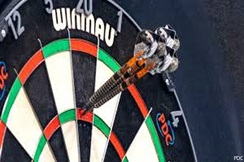Can the Internet of Things Make Your Policy Holders Happier?
(blank)
Can the Internet of Things Make Your Policyholders Happier?
Technology has made huge advancements over recent years. One of the most life-changing may be an innovation known as the “Internet of Things” (IoT). Referring to “things” from day to day life, it can cover almost any inanimate object that can be connected to another; such as our cars, our kitchen appliances, our fitness trackers and our heating systems.
In 2015, it was estimated that there were already over 15 billion connected devices. It is difficult to project how many more there will be by 2020, with industry experts suggesting anywhere between around 30 billion and 200 billion[i]. Either way, it is clear that IoT will have a huge impact on the modern world and the way we live.
It is not only sectors specialising in technology that need to keep in step with the changes. In fact, almost every type of industry is affected by IoT, with the Insurance Industry, among other, seeing disruption from the technology. However, the disruption comes with lots of potential benefits.
The IoT can have a great impact on the way that risks are assessed, the well-being of customers and the way that claims are handled. With careful application, this can be used to ensure that customers are happier with their insurance policies – increasing trust in their insurers and fostering brand loyalty.
Assessing risk more accurately
A number of different types of insurance can utilise IoT to give policyholders a more personalised insurance product. One example is in the use of health trackers, allowing underwriters to clearly assess the level of risk in a customer’s lifestyle when selling health insurance. The benefits of this are so huge that some companies have even started offering customers subsidised fitness trackers; on the understanding that they will reach a certain level of activity a day. This also benefits the customer because evidencing a healthier lifestyle through their fitness tracker can make them eligible for a reduction in their insurance costs.[ii]
Car insurance policies can also be revolutionised by IoT. It is predicted that by 2020, 75% of new cars will be fitted with IoT devices that can monitor the habits and style of the driver[iii]; the braking distances, speed that corners are taken, where the individual drives and at what times of day. From this data it will be possible for underwriters to get an accurate picture of the driver risk and tailor motor insurance policies accordingly. This means that safer drivers will have lower cost insurance.
These personalised policies will increase customer’s satisfaction and trust, as clients feel that responsible decisions are rewarded with reduced costs - rather than the seemingly arbitrary segmentation of old; such as age, gender or job.
Accident prevention
IoT can also be utilised for the prevention of accidents and loss; a very positive impact for both clients and insurance companies. Kitchen appliances, heating systems and house alarms can all be connected to early warning systems to warn householders prior to (or during an) occurrence.
House alarms will not be merely a noisy nuisance for neighbours but can link to the homeowner’s phone; allowing them to immediately access in-house CCTV cameras to assess the issue, calling emergency services if necessary.
Devices can be connected to water mains pipes, alerting the home owners in the case of an irregularity that suggests a leak – or even linking to an automated system to switch off the water supply, preventing water damage to the home.[iv] All these ways of mitigating accidents allows the homeowner to sleep more easily, the insurer to pay out less and the policy costs to come down; with the benefit of increased trust from the policyholder.
Claims validation
IoT will also be an aid in the fight against insurance fraud, as well as allowing genuine claims to run swiftly and more smoothly. Insurers will be able to see how a car accident happened (reducing quibbles about where the liability lies). Health issues can be monitored to some extent using health trackers. Establishing that accidents such as fires or floods were accidental will be easier. Any reduction in fraud can be passed along as a benefit to customers, in a reduction in policy costs for policy holders.
Staying ahead of the game
Of course, all the information that comes from interconnected devices is only beneficial with the ability to analyse and use this information wisely. The rise of AI in the insurance industry [LINK TO ARTICLE] will assist with the analysis of the huge amounts of data that are produced. Systems must be put in place to ensure that data is used responsibly and with permission, investing in enhanced cyber security for the protection of customers.
Employees with an understanding of IoT and its relevance will be vital as the industry moves forwards. Specialist Recruitment Agency, Aston Charles, works with a wide range of candidates with the relevant skills and experience to be able to support companies as they incorporate the change in approach that IoT is bringing.
A competitive advantage
The Internet of Things offers insurance companies the opportunity for a competitive advantage. With the right systems in place, insurance companies can impress their clients with personalised services, fee reductions, assistance with accident prevention and swifter claims management. All this results in happier customers; more inclined to be loyal to (and recommend to others) their insurance provider.
[i]Kelvin Claveria. 2018. 13 Stunning Stats on the Internet of Things. [ONLINE] Available at: https://www.visioncritical.com/internet-of-things-stats/. [Accessed 5 July 2018].
[ii]Fridtjof Detlefs, and Kunal Guha. 2017. How the rise of IoT is impacting insurance. [ONLINE] Available at: https://www.insurancebusinessmag.com/uk/news/breaking-news/how-the-rise-of-iot-is-impacting-insurance-67326.aspx. [Accessed 5 July 2018].
[iii]Kelvin Claveria. 2018. 13 Stunning Stats on the Internet of Things. [ONLINE] Available at: https://www.visioncritical.com/internet-of-things-stats/. [Accessed 5 July 2018].
[iv]Rick Huckstep. 2018. Insurance of Things – how IoT shows prevention is better than cure for Insurers. [ONLINE] Available at: https://www.the-digital-insurer.com/blog/insurtech-insurance-of-things-how-iot-shows-prevention-is-better-than-cure-for-insurers/. [Accessed 5 July 2018].









